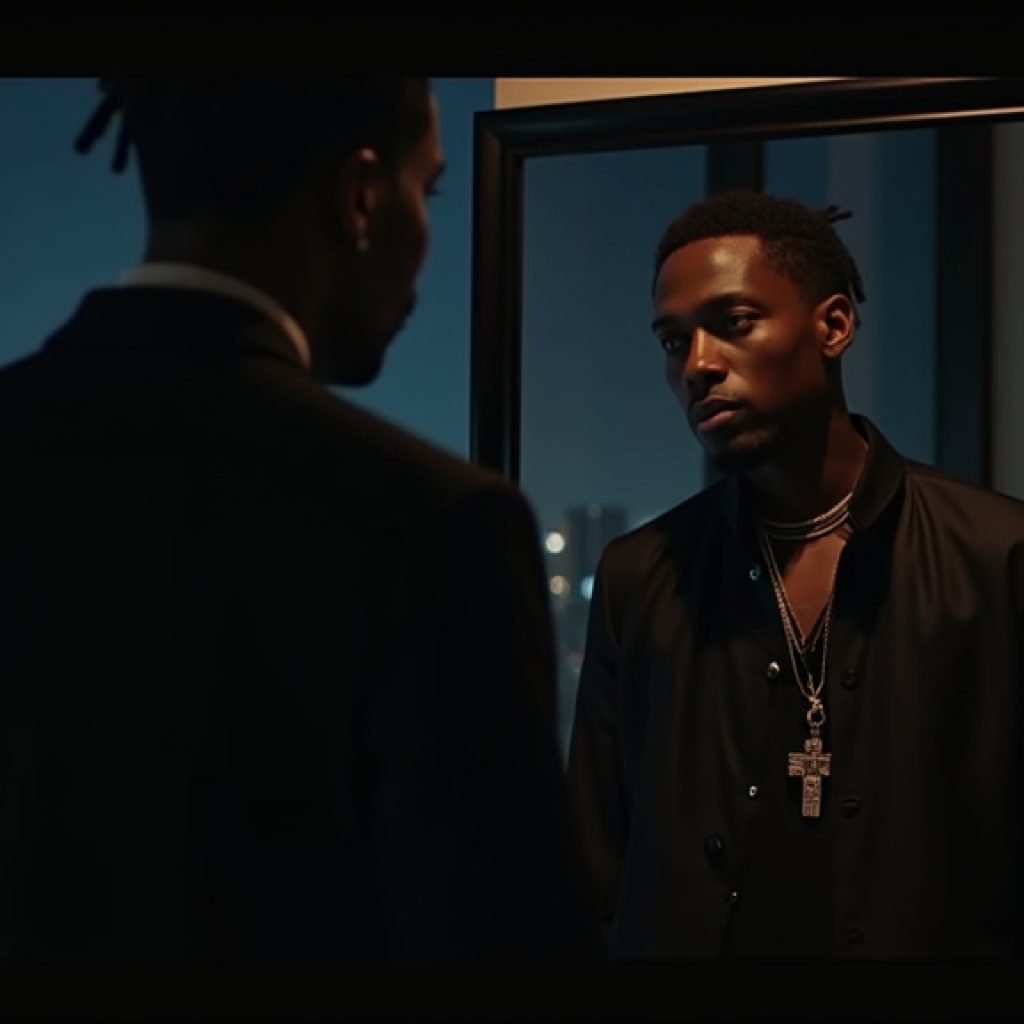Veteran rap icon Fat Joe has found himself in a familiar hip-hop quandary, admitting he can’t stop listening to Gunna’s latest album, “The Last Wun,” despite the strong personal reservations he holds regarding artists perceived as disloyal. The confession, made on his “Joe and Jada with Jadakiss” podcast, highlights the perennial tension between appreciating an artist’s musical prowess and upholding deeply ingrained cultural codes.
During a recent episode, Fat Joe revealed to his co-host Jadakiss that he had spent a considerable amount of time listening to a particular new album during a long flight, finding it to be exceptionally enjoyable. While initially hesitant to name the artist, Jadakiss prompted him, confirming it was Gunna’s “The Last Wun,” an album that has since climbed the charts.
Chart-Topping Success for ‘The Last Wun’
Gunna’s “The Last Wun,” released on August 8, 2025, has proven to be a commercial success, debuting at number three on the Billboard 200 chart. The project garnered 80,000 album-equivalent units in its first week, with the vast majority derived from streaming figures, which surpassed 104 million across its tracks. This marks Gunna’s eighth charting release and his sixth album to land in the top three of the prestigious chart. The album features contributions from artists such as Offset, Burna Boy, Wizkid, Nechie, and Asake, showcasing Gunna’s continued relevance in the contemporary music landscape. Furthermore, eight of the album’s 25 tracks made appearances on the Billboard Hot 100, demonstrating its broad appeal.
The Unwritten Rule: Loyalty in Hip-Hop
The context surrounding Gunna’s album release is deeply intertwined with the ongoing YSL RICO trial. Gunna faced widespread accusations of being a “rat” and betraying his associates, particularly Young Thug, after taking an Alford plea in the case in late 2022. Despite his legal team asserting that his plea did not cooperate with prosecutors to harm Young Thug’s defense, the perception among many in the hip-hop community, and certainly within street culture, has been one of disloyalty. Leaked audio allegedly featuring Young Thug himself has further fueled these narratives, with accusations of Gunna pursuing personal deals behind his mentor’s back. This has reignited the age-old “no snitching” code, a foundational element of hip-hop culture that emphasizes silence and solidarity when dealing with law enforcement. For many, cooperation with authorities is an unforgivable offense, regardless of the circumstances.
Fat Joe’s Personal Code: No Second Chances for Betrayal
Fat Joe, a seasoned veteran of the hip-hop industry, has always been vocal about his adherence to a strict code of loyalty. He has publicly condemned artists who have cooperated with authorities, notably referencing Tekashi 6ix9ine’s legal entanglements. Joe often shares personal anecdotes to illustrate his firm stance, recounting a story about a friend who became an informant after facing federal charges. In Joe’s worldview, such betrayals leave no room for reconciliation; he emphasizes that for him, there are no second chances for those who violate this fundamental principle.
This personal history and public stance place Fat Joe in a difficult position when it comes to Gunna’s music. While he acknowledges the quality of “The Last Wun,” his internal conflict arises from the perceived transgression of the hip-hop code. He expressed his struggle on the podcast, indicating that once he assumes an artist is a “rat,” his people (and by extension, he himself) are “off” them, irrespective of their artistic output.
The Art vs. Artist Dilemma
Fat Joe’s predicament mirrors a broader debate within the music industry and among fans: Should one separate the art from the artist? While Gunna’s music may resonate on its own merits, Fat Joe’s personal ethical framework makes this separation challenging. He cited the difficulty in separating the “art form from what it is,” suggesting that the actions of the artist can tarnish the reception of their work, especially when those actions directly contravene deeply held cultural values.
Jadakiss, while also acknowledging the importance of loyalty, seemed to adopt a more nuanced perspective, pressing Fat Joe on his enjoyment of the music and questioning the absolute condemnation. This exchange underscores the varied reactions within the hip-hop community itself, where some prioritize artistic merit, while others, like Fat Joe, hold steadfast to traditional codes of conduct.
Navigating the Complexities of Hip-Hop Stories
Ultimately, Fat Joe’s candid admission on “Joe and Jada” provides a compelling snapshot of the ongoing negotiations within hip-hop. “The Last Wun” is a testament to Gunna’s musical talent and his ability to connect with a large audience, evidenced by its strong chart performance. Yet, the controversy surrounding his legal entanglements and the “no snitching” code continues to cast a shadow. Fat Joe’s internal debate—enjoying the music while wrestling with his principles—reflects the complex and often contradictory narratives that define contemporary hip-hop stories. It raises the question of whether an artist can truly escape their past actions in the eyes of those who value loyalty above all else, even when those actions are embedded in highly successful music.
























